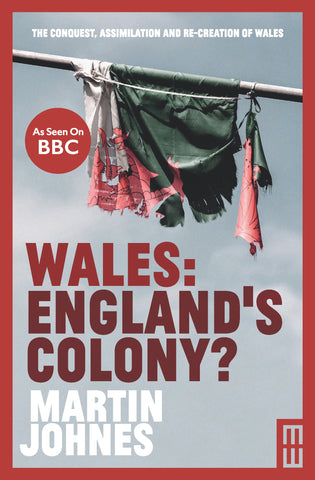The Conquest, Assimilation, and Re-birth of a Nation
FROM THE VERY BEGINNINGS OF WALES, ITS PEOPLE HAVE DEFINED THEMSELVES AGAINST THEIR LARGE NEIGHBOUR.
That relationship has defined both what it has meant to be Welsh and Wales as a nation. Yet the relationship has not always been a happy one and never one between equals. Wales was England’s first colony and its conquest was by military force. It was later formally annexed, ending its separate legal status. Yet most of the Welsh reconciled themselves to their position and embraced the economic and individual opportunities being part of Britain and its Empire offered. Only in the later half of the twentieth century, in response to the decline of the Welsh language and traditional industry, did Welsh nationalism grow.
This book tells the fascinating story of an uneasy and unequal relationship between two nations living side-by-side. It examines Wales’ story from its creation to the present day, considering key moments such as medieval conquest, industrial exploitation, the Blue Books, and the flooding of Cwm Tryweryn.
Wales: England’s Colony? challenges us to reconsider Wales’ historical relationship with England and its place in the world.
 Martin Johnes grew up in Pembrokeshire, lives in Cardiff and works at Swansea University, where he is Professor of Modern History. His research explores questions of identity in sport, politics and popular culture and has included studies of football, archery, popular music, Christmas, disasters, and local government. His other books include Wales since 1939 (2012) and A History of Sport in Wales (2005), and, with Iain McLean, Aberfan: Government and Disasters (2000). He can be found on Twitter @martinjohnes.
Martin Johnes grew up in Pembrokeshire, lives in Cardiff and works at Swansea University, where he is Professor of Modern History. His research explores questions of identity in sport, politics and popular culture and has included studies of football, archery, popular music, Christmas, disasters, and local government. His other books include Wales since 1939 (2012) and A History of Sport in Wales (2005), and, with Iain McLean, Aberfan: Government and Disasters (2000). He can be found on Twitter @martinjohnes.

